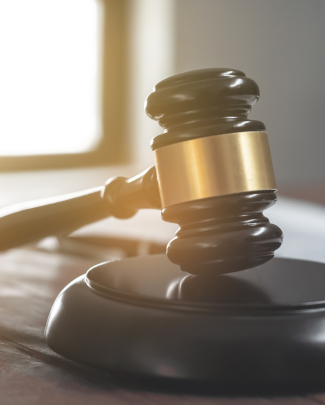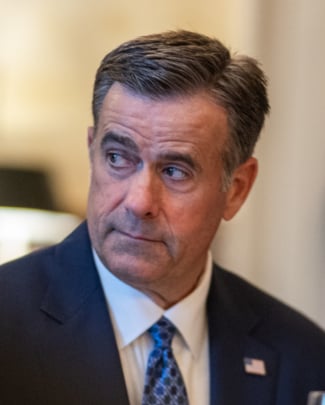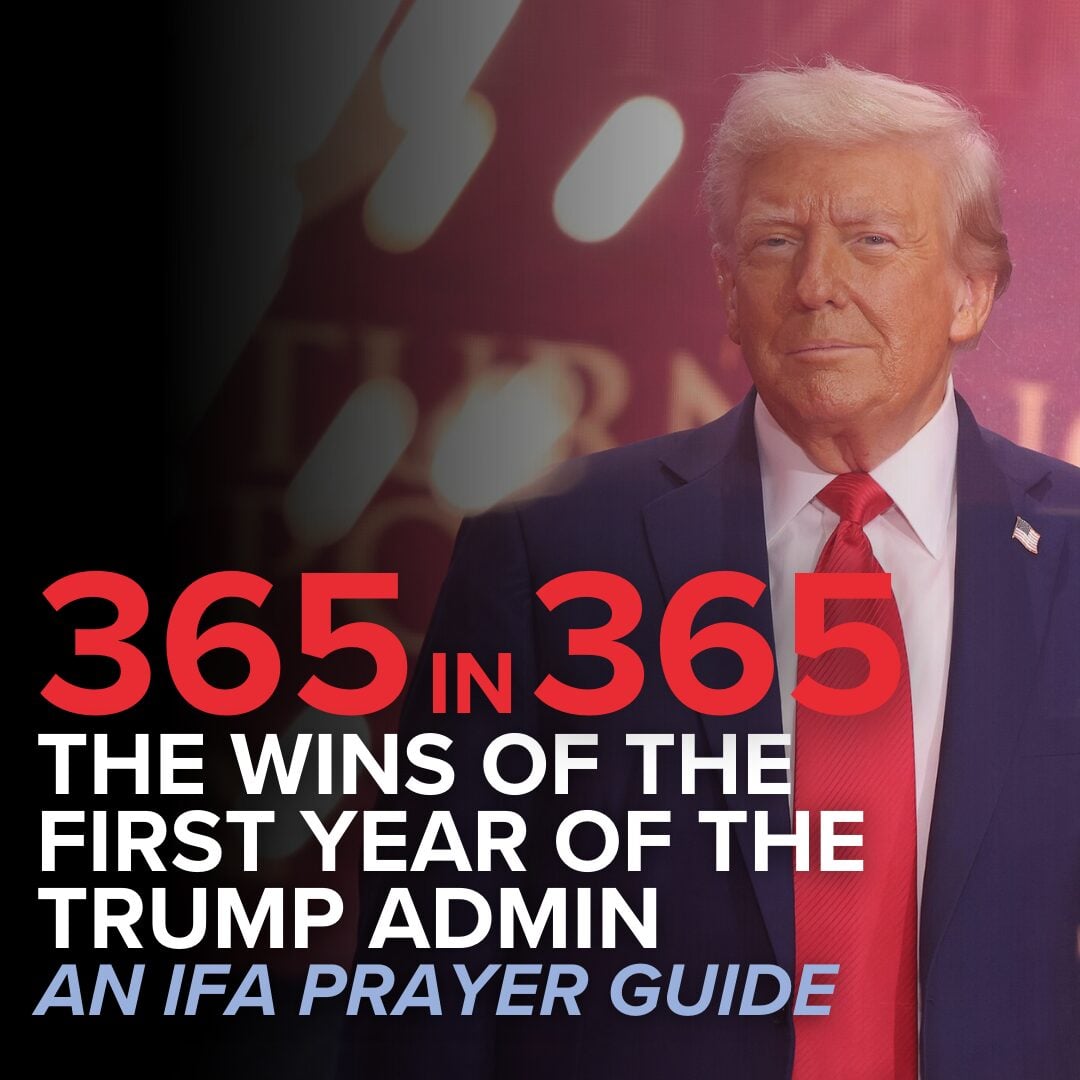FOUR TIMES THE DECLARATION OF INDEPENDENCE MENTIONS GOD, AND WHY IT MATTERS
SUPREME COURT DECLINES CASE ABOUT USING TAX DOLLARS TO PRESERVE HISTORIC...
ABORTION, VACCINES, AND OUR INTERCESSION: UPDATED
MUSLIM PARENTS KEEP 600 KIDS HOME FROM SCHOOL TO PROTEST LGBTQ LESSONS
SMUGGLERS FORCE THOUSANDS OF CHILD MIGRANTS INTO PROSTITUTION
FOUR TIMES THE DECLARATION OF INDEPENDENCE MENTIONS GOD, AND WHY IT MATTERS
Many historians call the Founding Fathers “deists,” and many of them were not true Christians — after all, Thomas Jefferson tore all the miracles out of the Gospels! But judging by the Declaration of Independence, our Founders were more religious than many think: our founding document mentions God no less than four times.
This is not to say America was founded as an explicitly Christian nation — the federal government has never had an established religion. But the Jewish and Christian understandings of God deeply influenced the founding generation, and that influence radiates from the Declaration of Independence.
Here are the four times the Declaration mentions the deity:
1. The Laws of Nature and Nature’s God…
The very opening of the Declaration features a reference to God (emphasis added):
When in the Course of human events, it becomes necessary for one people to dissolve the political bands which have connected them with another, and to assume among the powers of the earth, the separate and equal station to which the Laws of Nature and of Nature’s Godentitle them, a decent respect to the opinions of mankind requires that they should declare the causes which impel them to the separation.
This reference to God has been cited as an example of deism, but it actually is doing something more than tying nature to God. Deism states that a Creator God made the world and gave humans the capacity to reason but left them to run on their own (it also rejects scripture as twisted and a bad source of truth and morality). He does not engage in human events, and there is (and was) debate on whether He is the source of morality.
This document explicitly states that the God revealed in nature is also the giver of a moral law between peoples — a law which states that the American colonies ought to be free and independent states. This is, arguably, going farther than deism by giving God the ultimate moral authority. The Declaration of Independence only has force because it appeals to the Natural Law and the law of the one who made nature itself — making the deity the clear source of morality.
2. Endowed by their Creator…
The second reference to God is perhaps better known:
We hold these truths to be self-evident, that all men are created equal, that they are endowed by their Creator with certain unalienable Rights, that among these are Life, Liberty and the pursuit of Happiness.
This sentence, which lays out the three most fundamental rights that all government is bound to respect, is both well-known and beloved by millions of Americans. Yet, it seems few really notice the meaning of this simple statement: our rights come from God Himself, from the being who made humanity.
Of course, this does not mean the Creator is the Christian God, YHWH, or Allah. This is not a statement endorsing one religion above any other, but making the claim that the rights which all governments ought to respect come from the highest moral authority, and that authority is the one singular being who made the universe, and humanity especially.
3. The Supreme Judge of the world…
The Declaration further emphasizes the Creator’s authority:
We, therefore, the Representatives of the United States of America, in General Congress Assembled, appealing to the Supreme Judge of the world for the rectitude of our intentions, do, in the Name, and by the Authority of the good People of these Colonies, solemnly publish and declare, That these United Colonies are, and of Right ought to be Free and Independent States;
God is not just the creator of the world and the giver of the moral law, but He also has the authority to judge all men and women on earth. This is sounding less and less like an uninvolved deist God and more like a theist God, like the omnipotent being in Judaism, Christianity, and Islam.
While some deists at the time of the founding did believe in an afterlife, many did not, and it was unclear even if those who believed in an afterlife also believed that God would judge all human beings after death, a key tenet of the theistic faiths. Deism did not preach that God would judge the world, but the Declaration did.
4. The protection of divine Providence…
Finally, the Declaration declares the least deist idea ever:
And for the support of this Declaration, with a firm reliance on the protection of divine Providence, we mutually pledge to each other our Lives, our Fortunes, and our sacred Honor.
Yes, a document primarily drafted by a deist par excellence proudly declares that the authors submit themselves to God’s protection. How could a deist God, who by definition does not interfere in the world of men and women, be relied upon to safeguard this budding nation? He could not.
While some forms of more recent deism do assert that God interferes in the realm of humanity, “classical deism,” which many of the founders are said to have believed, definitely did not. The Declaration of Independence is not a deist document, whether or not its authors were. If you want a stronger example of deism in politics, look at the anti-religious and anti-clerical French Revolution.
Why it matters.
So the Declaration of Independence mentions God four times, saying He created the world, is the foundation for morality, will judge the world, and interferes in the lives of nations and peoples. Why does this matter today?
These references to God matter because they reveal a key point the Founding Fathers often brought up. Perhaps President John Adams articulated it best in his letter to the Massachusetts militia in 1798. He warned against an unchecked release of passions:
…we have no government armed with power capable of contending with human passions unbridled by morality and religion. Avarice, abmition, revenge, or gallantry, would break the strongest cords of our Constitution as a whale goes through a net. Our Constitution was made only for a moral and religious people. It is wholly inadequate to the government of any other.
The leaders who formed our country based their arguments for independence on the laws of God, and they trusted Him to guide America through its struggles. They looked to faith as a bulwark of freedom, not as its opposite. Would that Americans today might see this with their understanding.
(Excerpted from PJ MEDIA)
Pray through the Preamble to the Constitution with this prayer bookmark from Intercessors for America. Get your copy here.
Partner with Us
Intercessors for America is the trusted resource for millions of people across the United States committed to praying for our nation. If you have benefited from IFA's resources and community, please consider joining us as a monthly support partner. As a 501(c)3 organization, it's through your support that all this possible.


We use cookies to ensure that we give you the best experience on our website. If you continue to use this site we will assume that you are happy with it. Privacy Policy




Comments
Four times, yes — all generic attributes of generic functions of deities in general. Any nature deity would qualify as “Nature’s God,” any deity held to’ve had a role in the creation of humans would qualify as “their Creator” (so, for that matter, would Darwinian evolution), any deity of judgment would qualify as “supreme Judge,” and any deity that any people has ever entreated through prayer or rite or ritual for any sort of divine intervention would qualify as “divine Providence.”
If Jefferson had wanted to refer specifically to the God of the Bible, the accepted formal nomenclature of the time for use in formal documents (which the Declaration certainly qualified as) would’ve been, “the Lᴏʀᴅ God of Abraham,” “the Lᴏʀᴅ God of Abraham, Isaac, and Jacob,” or “the Lᴏʀᴅ God of Israel.” Or, in a more militaristic sense (which the Declaration also qualified as), “the Lᴏʀᴅ Sabaoth” or “the Lᴏʀᴅ of Hosts.”
Had he wanted to exclude the Jews and Muslims and other non-Christian Abrahamics, he would’ve written, “our Lord and Saviour Jesus Christ.”
He gave himself four opportunitites to do any of those things, and yet not one of them is specific to the Abrahamic, let alone Christian, God.
When Alex de Tocqueville came to America, he reportedly, carefully studied our institution to try to find the source of our greatness! He finally said that he found it in our churches! He is supposed to have concluded, something like this!!! America is great because she is good, and If America ever ceases to be good, she’ll cease to be great!
Hello, many African Americans are trying to gain understanding of how this document relates to our race, then and today, can you help us!!
John Adams captured the power of unbridled passions that we’ve watched for weeks now. These same passions have been loosened in our public classrooms k-12 and our colleges and universities for decades. Over time these passions have gained powerful leadership positions in government and education. I hope our Nation will beg God to forgive us of our sins as a Nation and restore us to living in fear, respect and love with Him. Let God’s Holy Spirit cleanse, heal and establish a more perfect Union in America.
Those that decide that God does not exist or they don’t need Him will one day rot in hell if they don’t change and accept Him! We can do nothing by ourselves. We need our Heavenly Father and I pray that this nation that was founded knowing God as Supreme, will turn from their wicked ways and find God again!
Without God there is no help in times of trouble. Without God there is no righteousness. Without righteousness there is no liberty, for then sin and death rule. But Jesus overcame sin and death, so liberty is possible. “Where the spirit of the Lord is, there is liberty also.”
Yes our forefathers realized that without God we can do nothing.